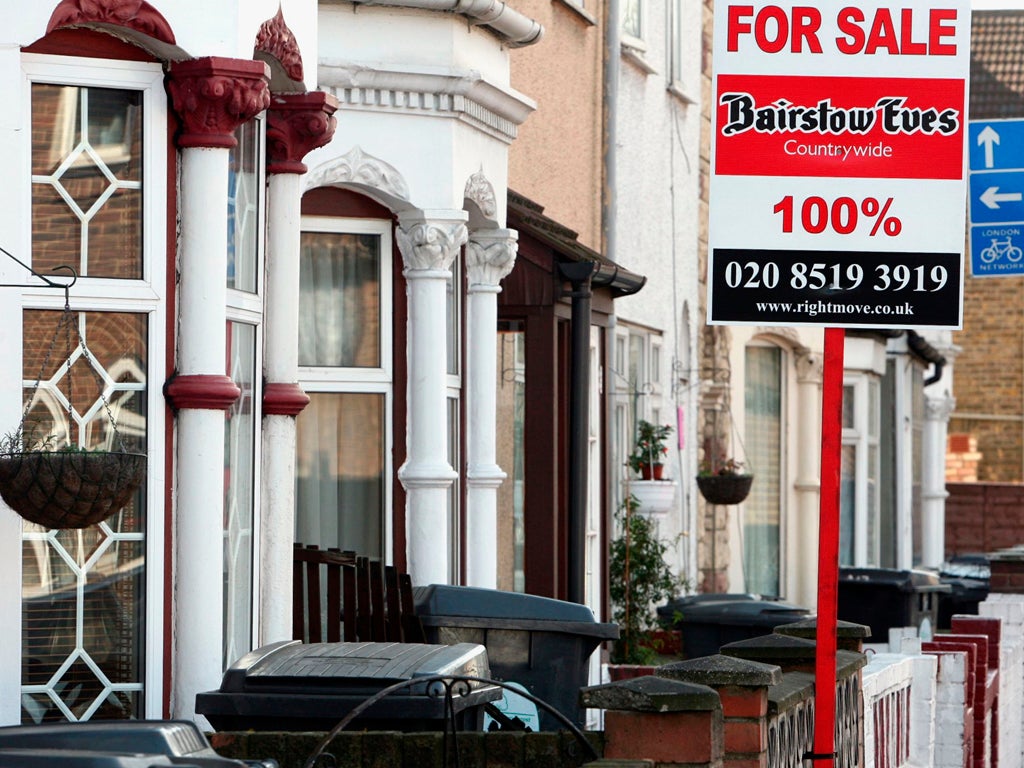A house used to be somewhere to make a home. For too many it's now just a cramped, overpriced box
We need to build a housing market that focuses on buyers rather than sellers, that sees houses as places to live rather than as assets to make money

Over the last few weeks I and my partner have been engaging in that most quintessentially British of pursuits; no, not dogging, but house viewing.
And what a strange pastime it is. You walk around someone else’s property nodding solemnly at boilers, staring profoundly at fittings and sockets and uttering pseudo-knowledgeable tosh about catchment areas and storage space. I must have used the term “load-bearing wall” more times than the rest of my life put together, a fact which makes me feel strangely soiled.
At first it was a reasonably interesting way of spending a Saturday afternoon, a bit like being in your very own episode of Location, Location, Location. However as the weekends wore on and the viewings gradually racked up, my enthusiasm began to wane. Soon I’d begun to see one too many cupboards described as ‘third bedrooms’, one too many ‘south-facing’ gardens, one too many teenage estate agents drive off in cars with four exhausts, worth twice the value of our entire deposit.
More than anything, something began to slowly register in my mind. It was this thought – in no other field of human retail is so little given by so few, for so much.
And it’s not just how little you get for your money, it’s that you’re expected to get excited about it. You’re looking around a house that could cost you more money than you’ve ever spent on anything before, by a factor of twenty, and it’s about the size of a squash court. And somehow you’re supposed to feel a ‘connection’ or a ‘wow factor’ or a feeling that this could be ‘the one’.
“Ah, this could be my office’” you’re supposed to think as you take it in turns to step into a box room which is only big enough to admit one person at a time. “This will make a nice room for our first born,” you’re supposed to coo at each other as you peer into what you at first took to be an airing cupboard. “I could do something with this,” you’re supposed to sigh in a moment of quiet reflection as you look out over a back garden as narrow as a bowling lane.
But you don’t, and not because you’re ungrateful to finally have the chance to get on the property ladder. Quite the opposite. It’s because you’ve never spent anything like as much money before that you’re so stunned at how little actual house it buys. I mean, if you were buying £200,000 worth of beer or eggs or hoover bags, that would be a lot of stuff, right? It would cover several acres or fill a swimming pool or a small warehouse. It would certainly look more impressive than a kitchen-lounge-diner and a bit of off-road parking.
And to top it all off what you can afford is getting less by the day. UK house prices jumped 2.4 percent in February, the highest rise since October 2007 and an uplift which one analyst described as “approaching madness.”
It seems that once again the UK housing market is becoming a seller’s market (if it ever stopped) and we all know what that means – speculators ruling the markets, second homes and sublets forcing first time buyers off the ladder, house price rises rocketing, ridiculous lending, the rich getting richer, the poor being forced to make do with less and less and, ultimately, another bursting of the bubble and a crashing of the system.
We can’t let this happen again. We need to build a housing market that focuses on buyers rather than sellers, that sees houses as places to live rather than as assets to make money. We should be looking to examples like Germany’s where tenants have greater rights and long-term leasing has made it pretty much the only place that hasn’t had a horrible property bubble in the last ten years. We should be doing anything rather than maintaining the status quo of an asset-driven, boom and bust housing market.
One of the houses we viewed was for sale because the previous owner, a man in his eighties, had recently passed away. At one point I found myself alone in the cramped back garden. It was peppered with oddly jarring reminders of his presence – a bird bath, a creaky greenhouse, a squat apple tree in the centre of the lawn. It was early February and the first crocuses were poking through the earth.
It might have been a moment to reflect on the rhythm of life, of the cycle of birth, death and renewal; of the legacies we leave to the next generation. It could have been a touching affirmation of the circle of life but, as I thought about it, I couldn’t help feeling worried rather than touched, disillusioned rather than optimistic.
What legacy, I thought, are we leaving to future generations with our treatment of houses as money-making assets rather than places to live and seek some form of comfort and happiness? Will it be a legacy of reverence and love for cherished homes passed on to future generations or one of cold-blooded economic reckoning; of young people being shown round ever smaller spaces trying ever more desperately to feel some kind of excitement about the cramped boxes they’re about to invest their lives in?

Join our commenting forum
Join thought-provoking conversations, follow other Independent readers and see their replies